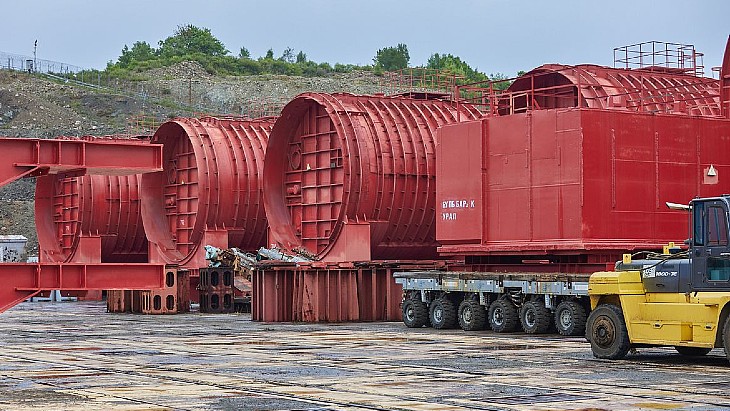Russia hails progress with americium in fast reactor research
Four Russian institutes have successfully conducted an experiment on the isolation and separation of americium and curium from used nuclear fuel. In a statement today, Russian nuclear fuel manufacturer TVEL said this was a crucial development in work aimed at closing the fuel cycle of fast reactors.
The A A Bochvar High-technology Research Institute of Inorganic Materials, a TVEL subsidiary, worked with the A N Frumkin Institute of Physical Chemistry and Electrochemistry, the Russian Academy of Sciences and the Mayak reprocessing plant on the project.
"It was necessary not only to separate the americium from the fission products, but also from the curium, in order then to add the americium to the fuel composition and for it to be 'burnt' in the reactor," TVEL said. "To date, this process has been performed in laboratories only. The completion of these tests allow us to speak confidently about having made a qualitative step forward in work on fast reactors," it said.
The experiment produced a 60 gram portion of americium with less than 1% curium. The isolation of americium of such purity was possible "thanks to the previous and extensive laboratory experience and achievements" of the Institute of Physical Chemistry and Electrochemistry, the Russian Academy of Sciences and Mayak, TVEL said.
Valentin Ivanov, a director of JSC VNIINM, a research and development institute, said the research and development phase of the project has now been successfully completed. This confirms, according to Ivanov, that "the use of this technology by industry is possible and its application for the separation of americium from curium is easily scalable".
Andrey Shadrin, another director of JSC VNIINM, said: "One of the challenges facing fast neutron reactors is the closure of the fuel cycle using plutonium, neptunium and americium. Unlike curium and other long-lived active elements in the active life of reactors, it is probably already possible to use americium in fast reactors, thus reducing the environmental burden."
Americium, curium and neptunium are minor actinides. An actinide is an element with an atomic number of 89 (actinium) to 103. Actinides are radioactive and typically have long half-lives. They are therefore significant in wastes arising from nuclear fission, such as used fuel. They are fissionable in a fast reactor.
Researched and written
by World Nuclear News
_17992.jpg)
_75800.jpg)







_88592.jpg)
_66488.jpg)

